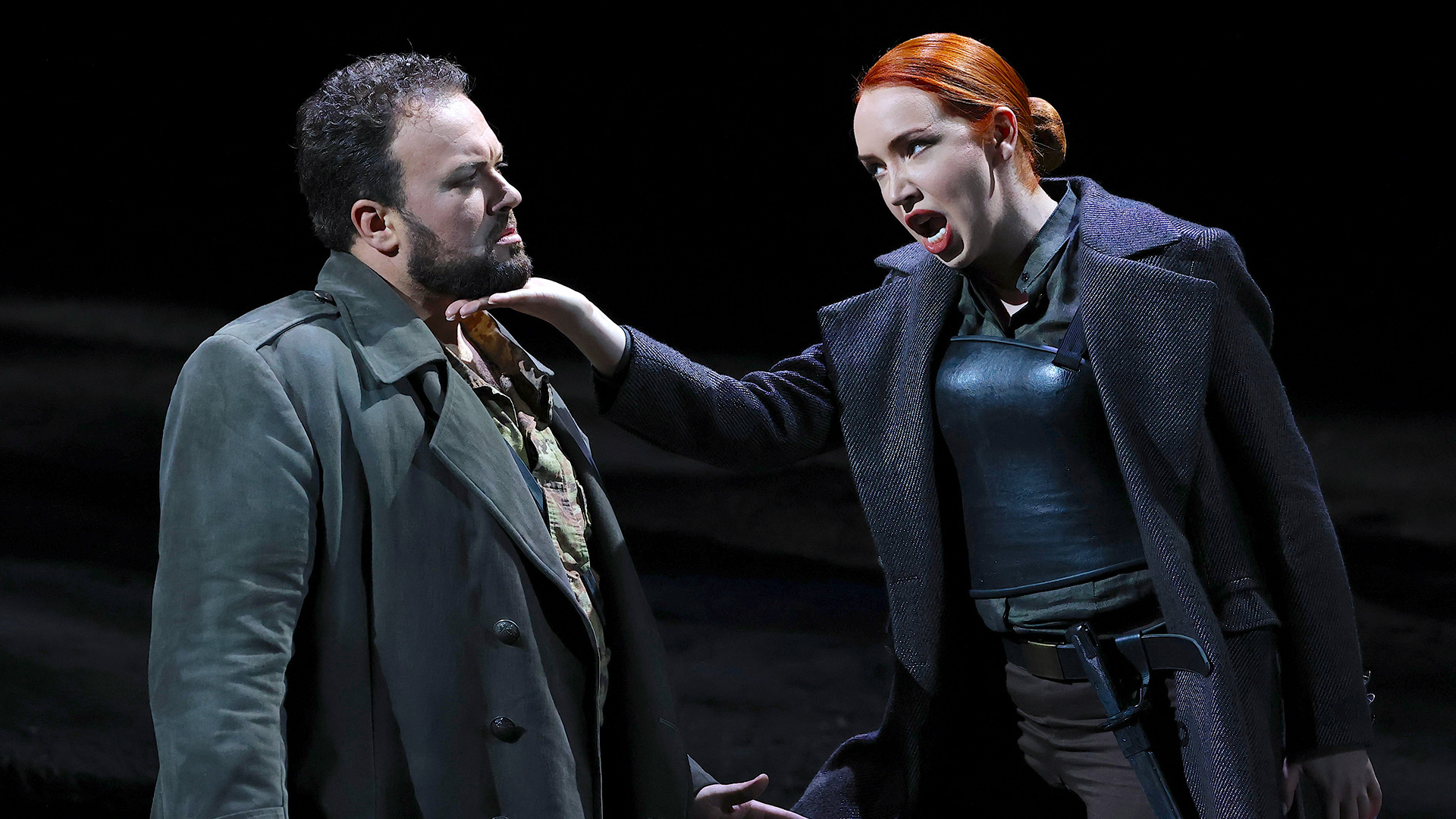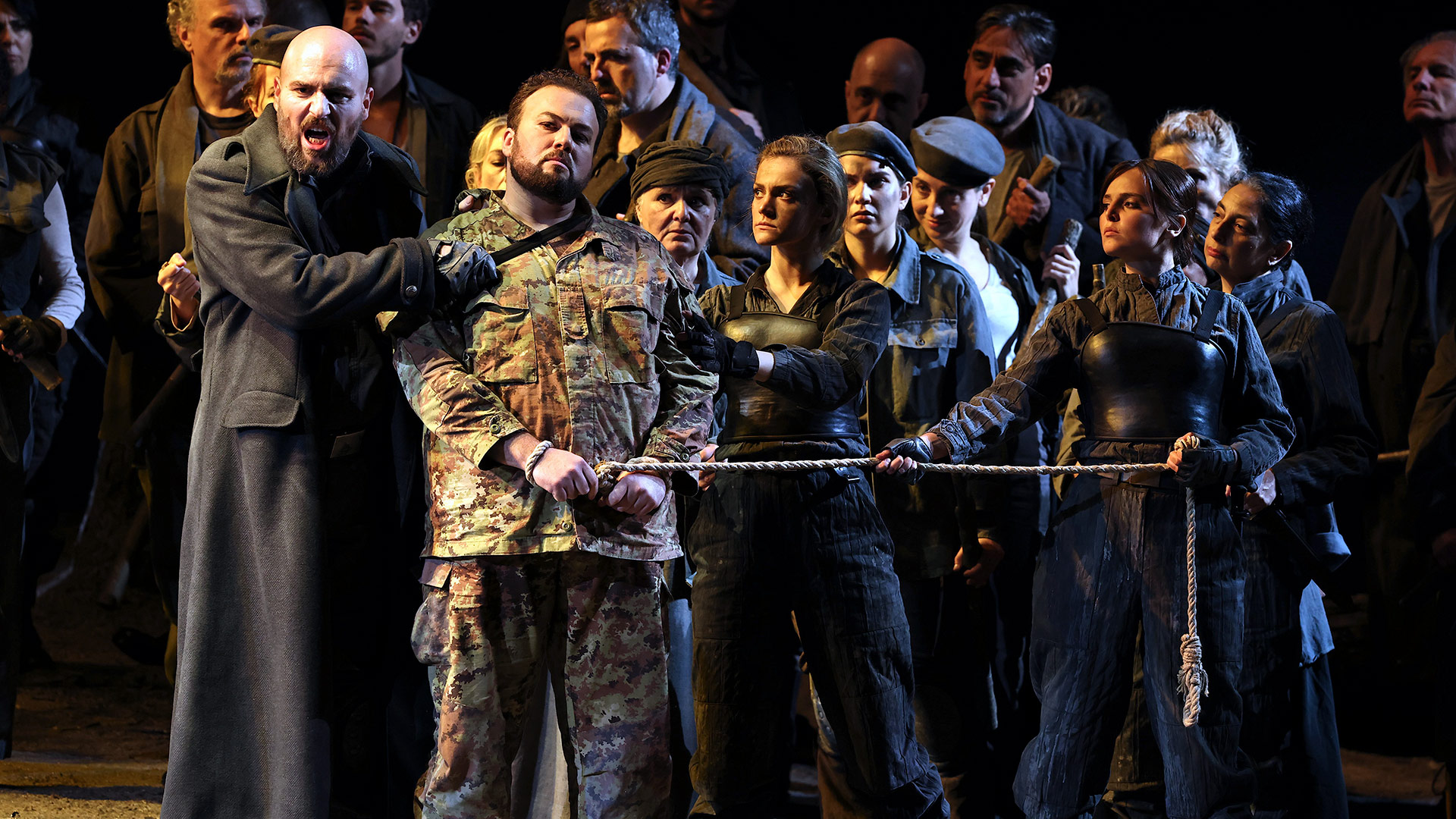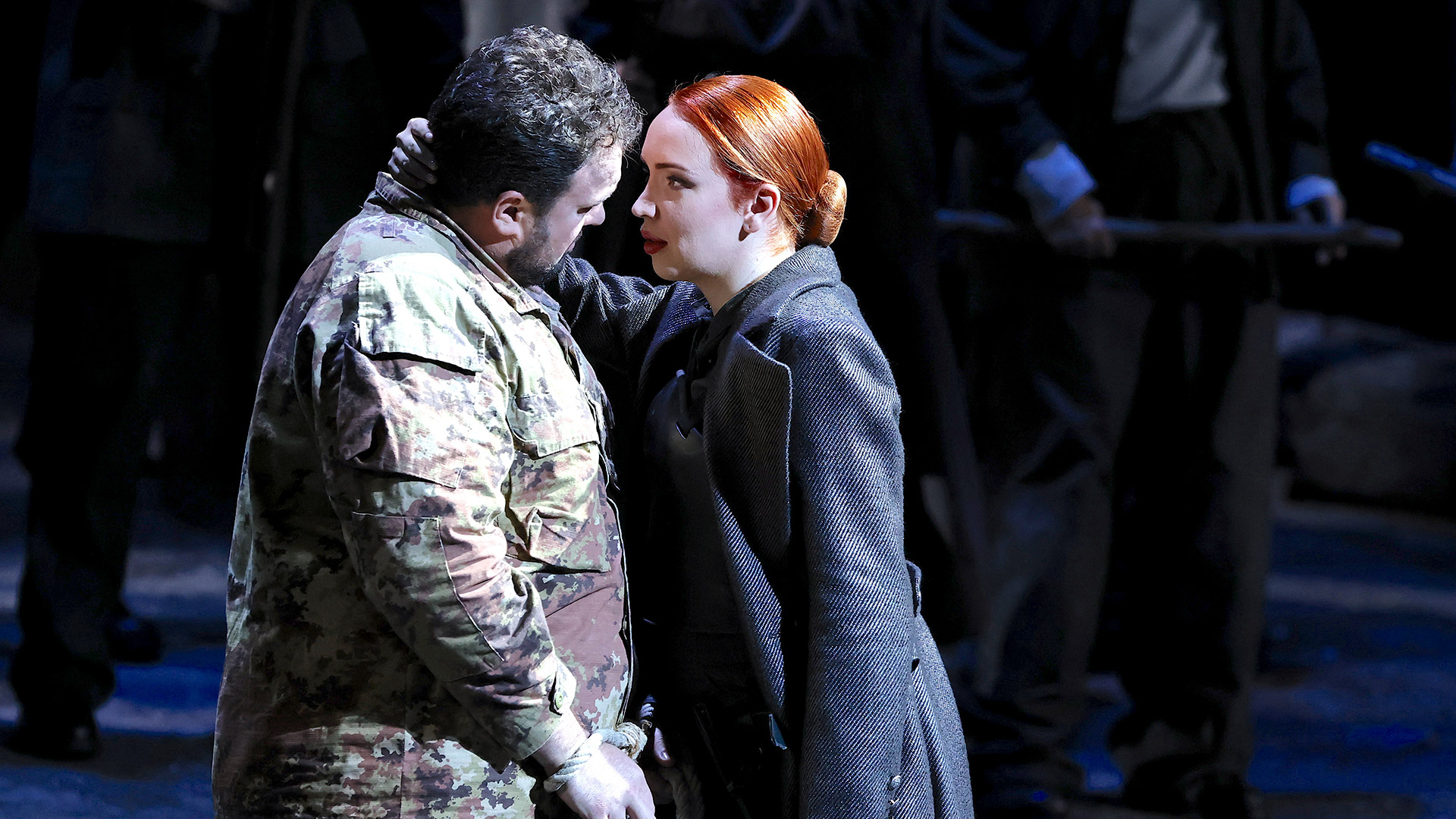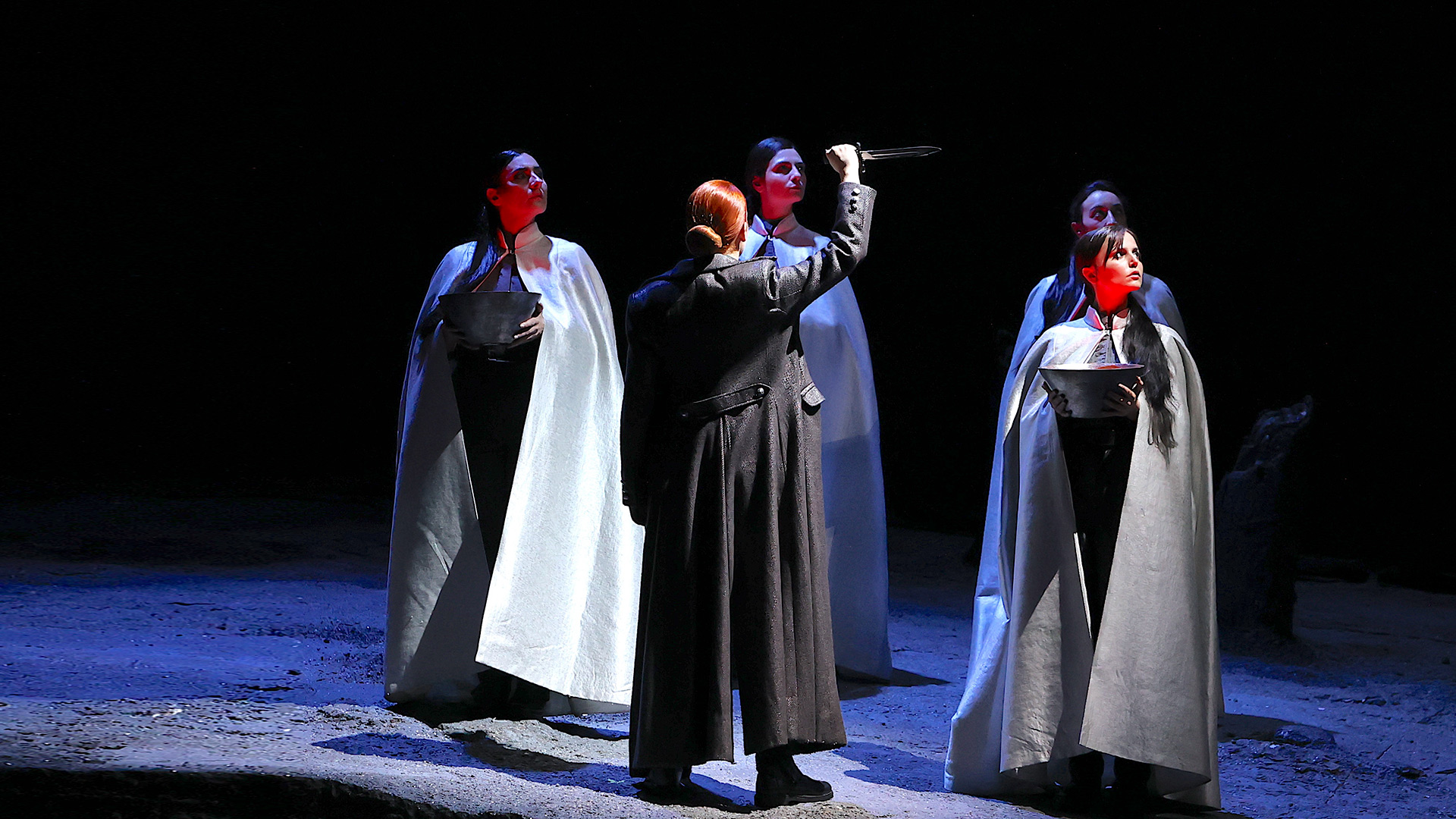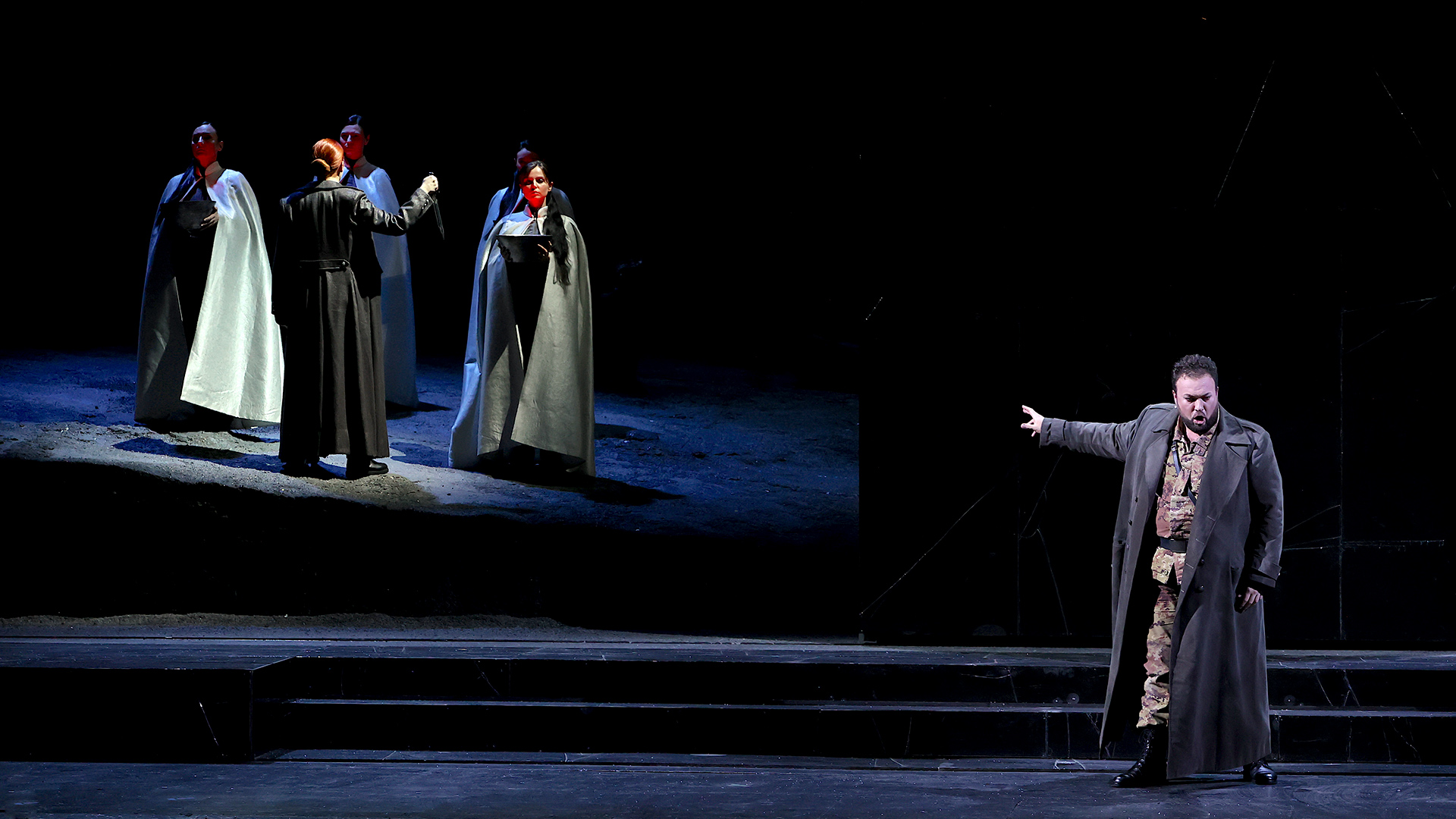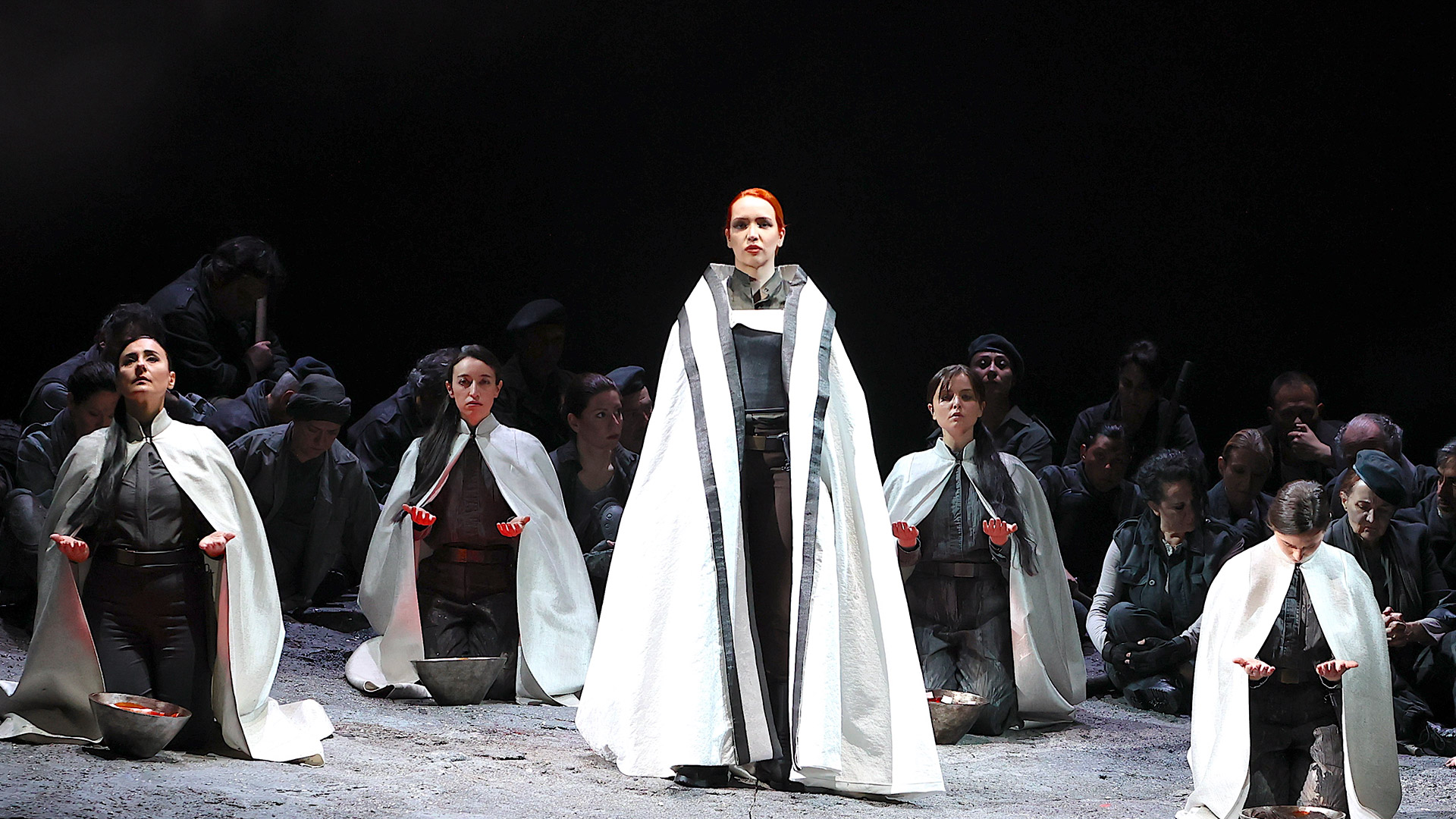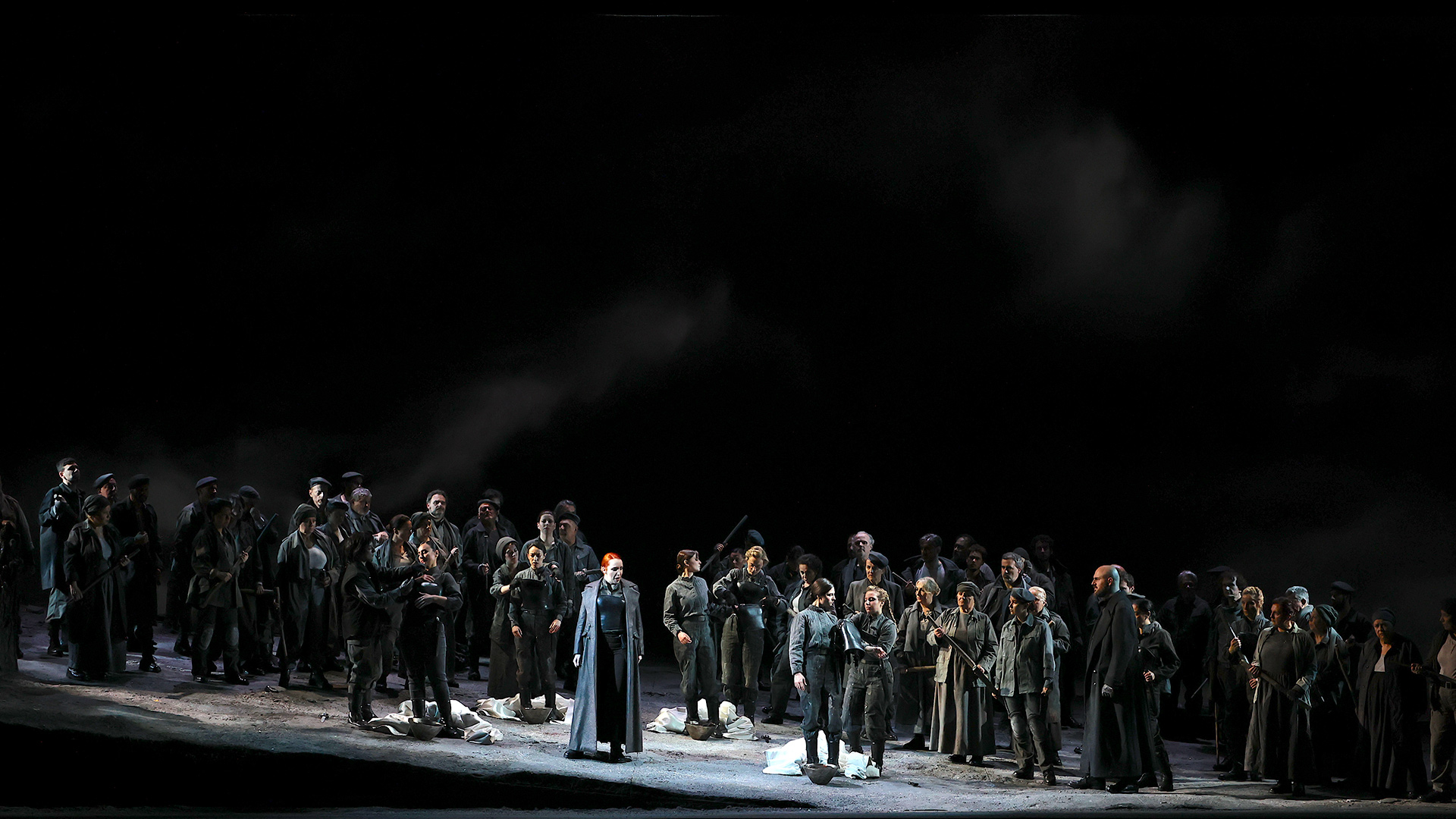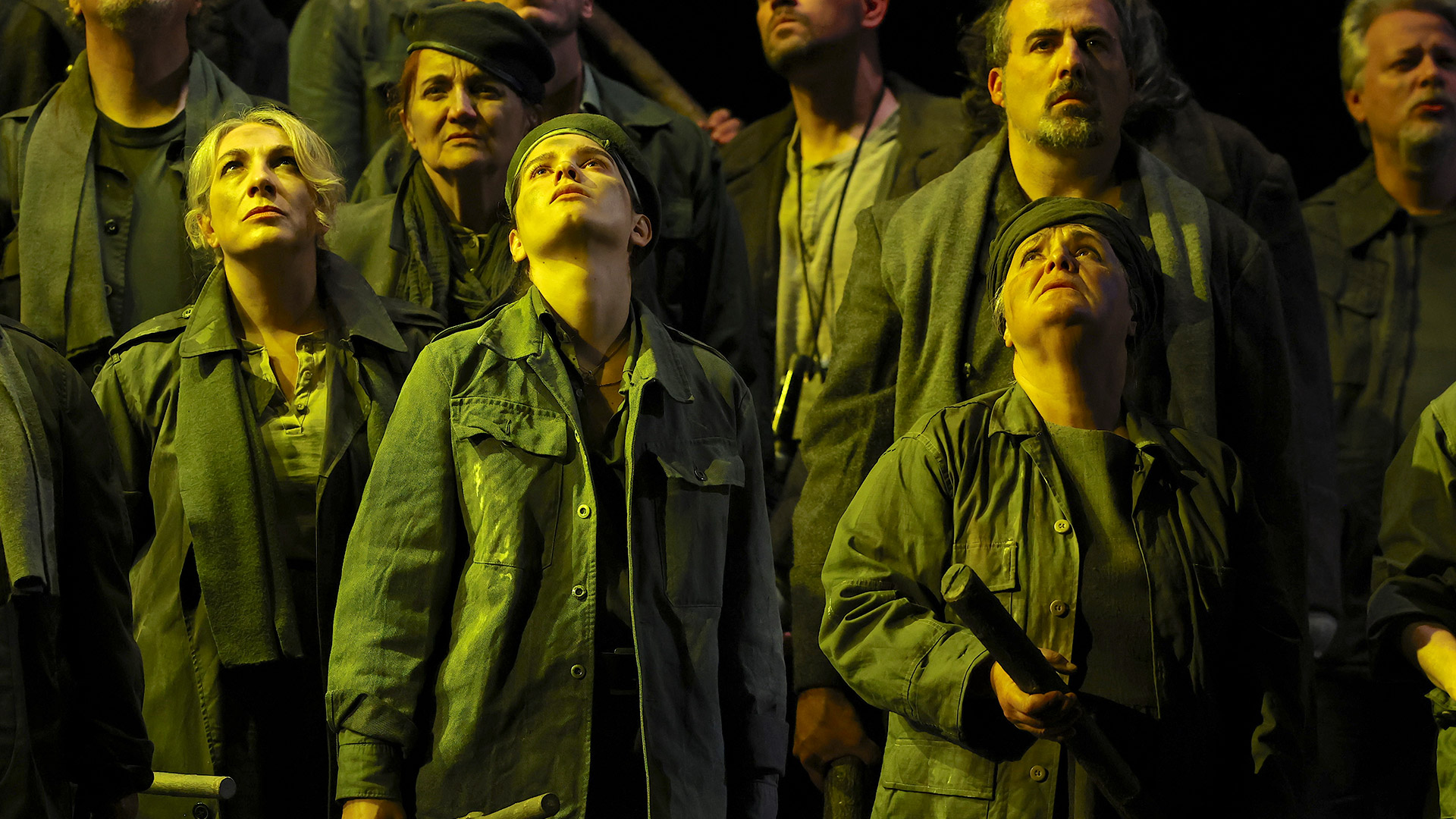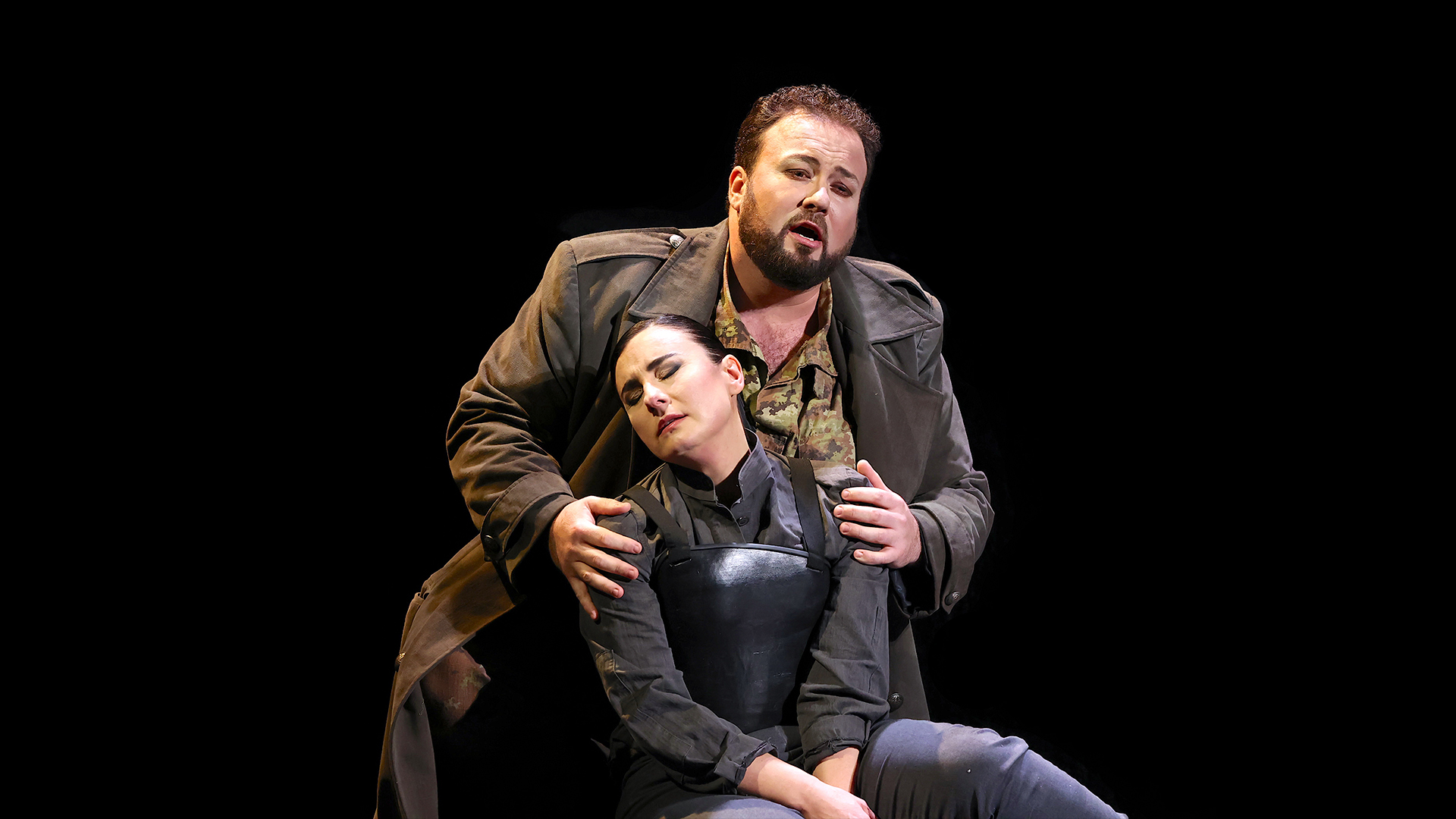A lyric tragedy in two acts
Music by Vincenzo Bellini
Libretto by Felice Romani from Norma, ou L’infanticide by Louis-Alexandre Soumet
Critical edition by
Riccardo Minasi e Maurizio Biondi
Copyright and publishing
Alkor/Bärenreiter, Kassel
Italy Representative
Sonzogno Music House of Piero Ostali, Milano
…
Norma
Vasilisa Berzhanskaya
Gilda Fiume (3, 6, 11)
Adalgisa
Carmela Remigio
Anna Dowsley (3, 6, 11)
Pollione
Stefan Pop
Antonio Corianò (3, 6, 11)
Oroveso
Alessio Cacciamani
Mariano Buccino (3, 6, 11)
Clotilde
Simona Di Capua
Flavio
Blagoj Nacoski
Conductor
and orchestrator
Riccardo Minasi
Director
Stefania Bonfadelli
Scenic designer
Serena Rocco
Costume designer
Valeria Donata Bettella
Choreographer
Ran Arthur Braun
Lighting designer
Daniele Naldi
New staging by
Fondazione Teatro Carlo Felice di Genova
co-produced with
Fondazione Teatro Comunale di Bologna
Orchestra, chorus and Technicians
of Opera Carlo Felice Genova
chorusmaster
Claudio Marino Moretti
Performers of the Bologna Theatre School
Alessandra Galante Garrone
Thanks to FILARMONICA SESTRESE “C. Corradi – Ghio S.“
Staging director
Luciano Novelli
Stage musical director
Paloma Brito
Répétiteurs
Sirio Restani, Antonella Poli
Stage musical assistants
Andrea Gastaldo, Anna Maria Pascarella
other Choir Master
Patrizia Priarone
Lighting Master
Silvia Gasperini
Supertitle Master
Simone Giusto
Head of musical archives
Simone Brizio
Scenic director
Alessandro Pastorino
Vice scenic director
Sumireko Inui
Consolle supervisor
Andrea Musenich
Stage technicians foreman
Gianni Cois
Tooling foreman
Tiziano Baradel
Audio/video foreman
Walter Ivaldi
Head of tailoring, shoemaking, make-up and wigs
Elena Pirino
Director’s assistant
Carmelo Alù
Costume assistant
Donato Didonna
Scene Assistant
Maria Ianesi
Make-up and hair co-ordinator
Raul Ivaldi
Sets and props
Fondazione Teatro Comunale di Bologna
and Fondazione Teatro Carlo Felice
Costume designer
Fondazione Teatro Comunale di Bologna
by Opera Carlo Felice
andSartoria Klemann
Footwear
C.T.C. Pedrazzoli
Wigs
Mario Audello
Supertitles
Prescott Studio
TITLE SPONSOR
Opera in brief
by Ludovica Gelpi
The composition of Norma began in 1831. Bellini worked with librettist Felice Romani on a tragic subject, Norma, ou L’infanticide, by French playwright Alexandre-Louis Soumet, a tragedy that was performed in Paris with great success in April of the same year. Only three months after the work began, Norma was staged at La Scala, it was 26 December. The first performance did not captivate the public, so much so that Bellini himself called it a fiasco. The reasons were probably circumstantial, from the second performance in fact the title became more and more popular, to the point that it was soon revived in several Italian and European theatres. The winning elements can be traced back to both the choice of subject and the way it is transposed to music.
Soumet’s text, suitably adapted for transposition, is full of fascinating elements. The story is set in Gaul, at the time of the Roman invasion, particularly in the sacred places of the Druids. We therefore have two separate dimensions: the mysterious Druidic culture, with sacred rituals and a spirituality linked to the cult of nature, and the Roman culture, which instead represents a more materialistic dimension. The protagonists on stage experience the tension of the contrast between a sense of cultural belonging and the feelings that challenge it. Norma is a multi-faceted tragic heroine, the very symbol of the Druid civilisation, as a priestess, and at the same time in love with the Roman consul Pollione, father of her two sons. Her story is articulated between a spirituality linked to her origins and her fundamental role in the society she represents, and her feelings that lead her to break her vows. Another prominent figure is Adalgisa, herself a priestess but younger. Her character represents a premature version of the protagonist. One of the purest and most intense examples of female friendship and solidarity is staged between the two. Pollione also experiences the weight of his responsibilities, but seems to escape them by allowing himself to be carried away by the feelings that lead him to love and then betray Norma. It is only in the finale that Norma and Pollione redeem themselves, meeting the tragic fate that will see them united in death. Bellini’s approach to the text emphasises and amplifies the presence of so many different dimensions, with a style ranging from recitative with an almost hieratic rhythm, to the more melodious bel canto of some arias. A key element is the chorus, which brings to the stage the Gauls who are oppressed but ready to rise up forcefully. His role is therefore of great importance in the portrayal of the vibrant tension throughout the story. To fulfil this fundamental dramaturgical function, the choral mass is significantly present, and takes on majestic dimensions.
Norma’s great influence on the opera to come is undisputed; it played a vital role in paving the way for what would later become 19th century Italian melodrama. Among others, Richard Wagner was an ardent admirer, so much so that he wrote: ‘How fruitful, compared to the bailamme of musical organisation of the new German opera composers, the Italian operatic form and manner is demonstrated by Bellini with his Norma in which music and poetry rise to the level of the ancient Greeks’.
There has always been much debate around the study of vocal registers in Norma. The first interpreter of the character of Norma, Giuditta Pasta, had in fact a unique vocality, with a singularly wide range, and in Bellini’s writing, the vocal line of Norma can adapt to both a mezzo-soprano and a soprano register. With the aim of highlighting all the possibilities of vocal extension, the critical edition edited by Riccardo Minasi and Maurizio Biondi includes two variants, one with a mezzo-soprano as Norma, the other with a soprano (with due adjustments in the orchestration). For this production, the Opera Carlo Felice Genova offers the public both versions, with two different casts featuring a mezzo-soprano Norma (Vasilisa Berzhanskaya) and a soprano Norma (Gilda Fiume).
